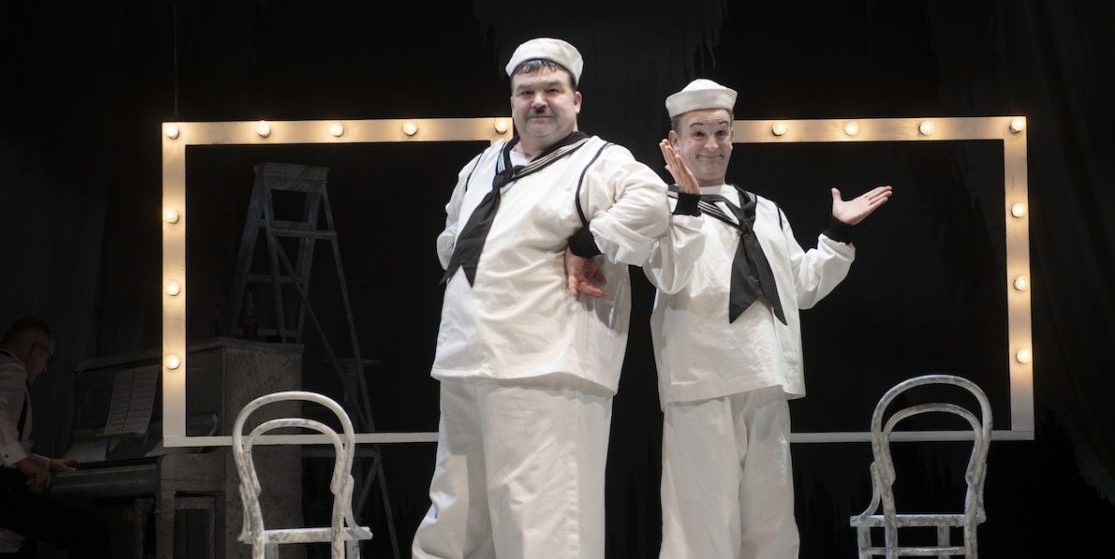Stan Laurel and Oliver Hardy are lauded as two of the finest comic stars of early cinema. Their partnership spanned the transition from silent cinema to talkies, and give rise to classic comic films such as Way out West, Sons of the Desert and Block-Heads.
Laurel & Hardy strikes the perfect balance between celebrating the comedy of the two geniuses at its heart, while not shying away from the sometimes difficult aspects of their lives. It has a strong strain of melancholy amongst the humour, which is given an extra facet by the fact this production is a revival of a 2005 show, with Barnaby Power and Steven McNicoll reprising their roles from 17 years ago. The sight of two older actors playing the gradually ageing Laurel and Hardy, while almost playing their younger selves as well, is a poignant one.
The play opens with what appears to be the ghosts of Stan (Power) and Ollie (McNicoll) stuck in some form of netherworld, eerily conjured by Neil Murray’s chilly-looking design of torn fabric backdrops. They take themselves and the audience through their lives, from cradle to coffin. Wicker laundry baskets neatly perform the function of both receptacles, just one of many examples of clever uses of props and staging throughout.
Matters take some time to warm up, with the rush through their early lives feeling a little hurried and disjointed, although there is a warmly-received scene in Glasgow, with Steven McNicoll taking full advantage of the chance to stretch his native vocal chords. Once the partnership comes together, however, the play starts to really sing.
A recreation of a silent movie scene is humorous and elegantly done, but the peak surely comes at the end of the first half. Power and McNicoll give a wonderful performance of classic Laurel and Hardy slapstick, which has the audience leaning forward in their seats and roaring along with laughter. Although nothing in the second half quite reaches these heights, it demonstrates perfectly the timing, skill and relationship that made Laurel and Hardy such a success.
As the eponymous pair, Barnaby Power and Steven McNicoll are well cast, sharing a tender if sometimes tense working and personal relationship. Power’s Laurel always seems on the verge of falling over, his face elastic, his voice always on the verge of breaking. By contrast McNicoll’s Hardy cuts a frustrated figure, stomping furiously about the stage as all his dignity and best-laid plans are undone by Laurel’s innocent bumbling. Power and McNicoll are supported by pianist Jon Beales, whose well-timed musical interludes add a splash of silent film-era humour to proceedings

